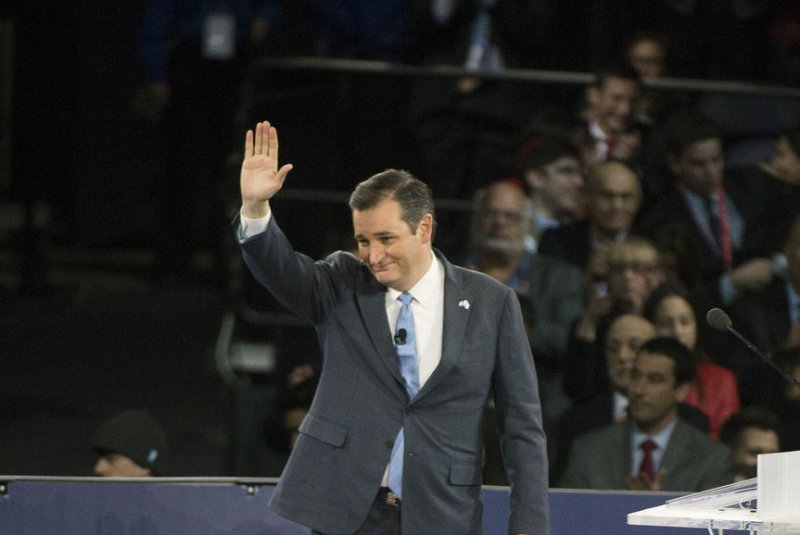Republican presidential candidate Ted Cruz delivers remarks in Washington on March 21. Cruz traveled to North Dakota on Saturday to address that state's delegate nominating convention. Photo by Kevin Dietsch/UPI |
License Photo
FARGO, N.D., April 3 (UPI) -- Republican presidential candidate Texas Sen. Ted Cruz appears to be best positioned to pick up delegates after Sunday's North Dakota GOP party convention.
North Dakota will send 28 delegates to the party convention in Cleveland this summer and most years is a bit of an afterthought in presidential primary politics. The state does not hold a primary or caucus. Instead, a hockey rink in Fargo was the scene of some intense and old-fashioned politicking, complete with intrigue that will only grow more intense if the race between Cruz and front-runner Donald Trump goes to the GOP convention without a clearcut nominee.
Because there is no statewide vote in North Dakota, the state's slate of 25 elected delegates are voted on by party faithful and are free to support the candidate of their individual choosing after that. And party rules state those delegates do not have to state who they will support before the party chooses them.
That led to a series of sharply contested moments in North Dakota's GOP convention. Party leaders, as is customary, put forth a slate of its "preferred" delegates. Most years those delegates are elected to the national convention without a fight. But in a presidential campaign where hardly anything is normal and no advantage has been earned without a struggle, on Sunday, the fight came to North Dakota.
Cruz temporarily left Wisconsin, where 42 delegates are at stake in a primary on Tuesday, to travel to North Dakota and address the convention Saturday. He brought surrogate Carly Fiorina with him. Trump dispatched his own rival-turned-ally, the retired neurosurgeon Ben Carson, to serve as his stand-in and cajole convention voters to support his campaign's preferred slate of delegates. Ohio Gov. John Kasich sent a top campaign supporter to whip votes, as well.
The New York Times reports the crowd appeared to lean toward Cruz based on the number of pins and placards in the convention hall. Cruz was greeted with a standing ovation when he spoke there a day before.
But Trump's campaign said they were comfortable with a number of the delegates eventually elected on Sunday. Trump's campaign said they supported the party's preferred slate, while Cruz activists had circulated their own list of preferred delegates for supporters to vote for.
Politico reports the Cruz campaign was able to shoe-horn seven delegates onto the final slate elected, in addition to those who may have supported him on the party's initial preferred list. The Cruz campaign claimed they had won a majority of the 25 delegates who made the final cut.
However, Trump's campaign was also predicting success, saying they would be "popping champagne" if the state party's initial list were elected, with 18 of the final 25 having appeared on that initial list.
One party activist challenged the state leadership to force delegates to declare which candidate they intended to support. The measure was eventually voted on and narrowly defeated.
If Trump and Cruz both fail to reach the 1,237 delegates needed to secure the nomination on the first ballot, all 28 of North Dakota's delegates — the 25 elected Sunday and the three superdelegates from the state, as well — will be the subject of substantial wooing and arm-twisting from the campaigns.















